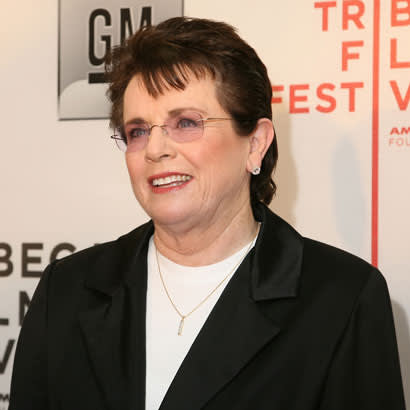
Pictured left: Tennis icon Billie Jean King. Photo by Laurence Agron, courtesy of Dreamstime.
Paving the Way
Sunday night’s Super Bowl put women’s equality front and center on one of the biggest stages in professional sports, giving the world a timely reminder that the fight for gender equity in sport is far from won. Tennis icon Billie Jean King, a pioneer for the fair and equal treatment of women in sports, conducted the coin toss with an important message for viewers at home: with June 2022 marking the 50th anniversary of Title IX legislation, let’s celebrate the wins, but double down on the urgent need to advance gender equity in sports now.
Enacted in 1972, Title IX prohibits sex-based discrimination in schools or education settings. Because athletics are considered a critical part of an institution’s education program, they’re covered under this law. Since the passing of Title IX, women have worked hard to accomplish major milestones in sports. In 1973, Billie Jean King and Bobby Riggs played a tennis match known as the Battle of the Sexes, which Billie Jean King won — paving a new future for women in tennis. FIFA sanctioned the first Women’s World Cup in 1991, the same year that the Olympics required all new sports to include women’s events and the beginnings of the WNBA started to take shape. The University of Connecticut’s women’s basketball team set a record in 2010 for winning 90 games in a row, a record previously held by the UCLA men’s team. And on Sunday night at the 2022 Super Bowl, the NFL honored a girls flag football league that is creating space and opportunities for young women to play a game they love.
Olympic Wins in Gender Equity
The NFL isn’t the only major sporting organization acknowledging the major milestones and accomplishments of women in sports, as well as the need for the better and fairer treatment of women in sports. The Olympic Winter Games in Beijing 2022 is elevating the need for gender equity to international attention — and achieving several record-breaking wins for gender equality along the way:
- Beijing 2022 is the most gender-balanced Olympic Winter Games in history.
- Beijing 2022 has the highest number of women-only and mixed-gender events ever.
- Coverage of the games, including medal events, will prioritize female athletes during primetime.
Kaillie Humphries’s gold medal victory in the inaugural monosled event demonstrates the progress being made toward gender equity in sports. Until this year, there was only one bobsled medal event for women in the Olympic Games (compared to two for men). This number doubled in 2022 thanks to Humphries, who championed a second medal event being added — an event she went on to win. While huge for Humphries, this second medal opportunity signals hope and inclusion for the future of the sport, and for women’s inclusion at the Olympic Games.
Barriers Remain
Yet discrimination against women in the sports community — both in and out of school and at all levels of competition — remains far too prevalent. For example, according to the National Federation of State High School Associations, the 3.4 million opportunities for girls to play high school sports in the 2017-18 school year fell far short of the 4.5 million opportunities for boys who played high school sports that year. And, the opportunities for sports dwindle to far less for transgender girls. Female athletes also face verbally, emotionally and sexually abusive behavior in the sports arena, and the recent U.S. National Women’s Soccer Team’s recent legal battle with the U.S. Soccer Federation over equal pay reminds us that male professional athletes can make anywhere between 15 percent to 100 percent more than female athletes.
As one of the largest providers of youth sports in the nation, park and recreation agencies have the power to help eliminate these barriers and support women athletes, ensuring girls who want to play sports have equitable access to the same opportunities for sport and play as their counterparts. It’s especially important for girls to play sports for health and socio-economic opportunities. A 2016 analysis based on the Gallup-Purdue Index found that former student athletes outperform other college graduates on important career and life outcomes, and girls who play sports have higher confidence and self-esteem levels. Beyond access, it’s our role to make sure girls feel included and welcomed into sports. Guidance for how to meaningfully engage girls in your sports offerings can be found here.
A Message of Hope — and Action
As Billie Jean King said in her tribute message, “It’s hard to understand inclusion until you have been excluded.” NRPA applauds our professionals working to ensure that girls and women today, and in the future, don’t have to be excluded to know what inclusion feels like. She reminds us that now is the time to act, to build on the positive momentum created by sporting organizations like the International Olympics Committee until gender equity is achieved. When we ensure equitable access to youth sports, all children win.
Teresa Morrissey (she/her) is an NRPA Program Manager.

